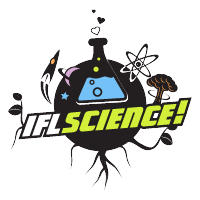Media Watch
This beetle can survive being run over by a car. could it lead to crash-proof human designs?
EcoWatch -
To understand how this exoskeleton works, the researchers first determined how much stress it could take. The answer? Quite a lot. The beetle can withstand a load of around 39,000 times its own body weight. … The Guardian explained. "We were impressed. Especially given that this beetle does not contain any mineral – just organic components," study coauthor and University of California, Irvine professor David Kisailus told The Guardian. Read More
The diabolical ironclad beetle can survive getting run over by a car. Scientists now know how.
USA Today -
"The ironclad is a terrestrial beetle, so it's not lightweight and fast but built more like a little tank," David Kisailus, the principal investigator and a materials science and engineering professor at the University of California, Irvine, said in a statement. … A team of researchers, headed by Jesus Rivera, a graduate student at UCI working under Kisailus, performed a series of tests to determine what factors contribute to the beetle's ability to survive getting crushed. Read More
Ironclad beetle built “like a tank” can survive being run over by a car
IFL Science -
"The ironclad is a terrestrial beetle, so it's not lightweight and fast but built more like a little tank," said principal investigator and corresponding author David Kisailus, a University of California, Irvine professor. ”That’s its adaptation: It can't fly away, so it just stays put and lets its specially designed armor take the abuse until the predator gives up.” Read More
Today
BBC -
“The diabolical ironclad beetle is so strong, it can survive being run over by a car. Scientists and engineers have been studying what it can teach the rest of us. I’ve been speaking about that with professor David Kisailus, professor of materials science at the University of California, Irvine: ‘First of all the name, diabolical, gives you visions of something of horror, and ironclad makes you think this thing must be incredibly robust…’” [2:56:28 – 2:59:47] Listen Now
Secrets revealed of beetle so tough it can survive being run over by a car
MSN (Sky News) -
The exoskeleton is thought to be one of the toughest structures known to exist in the animal kingdom. Another lead researcher and [UCI] engineering professor David Kisailus told Sky News the findings could inspire stronger structures and vehicles that are made with materials such as steel, plastic and plaster. Read More
This beetle is practically indestructible. Now scientists know why
CNET -
"The ironclad is a terrestrial beetle, so it's not lightweight and fast but built more like a little tank," said David Kisailus, a professor of materials science and engineering at the University of California, Irvine and co-author on the study, in a release. … To study the tiny tanks, a member of the research team, Jesus Rivera, captured beetles and brought them back to the lab. First, researchers discovered the beetle's exoskeleton could withstand around 150 newtons of force -- 39,000 times its body weight. Read More
Scientists detail structural secrets of near-indestructible beetle
UPI -
"The ironclad is a terrestrial beetle, so it's not lightweight and fast but built more like a little tank," study co-author David Kisailus said in a news release. "That's its adaptation: It can't fly away, so it just stays put and lets its specially designed armor take the abuse until the predator gives up," said Kisailus, a professor of materials science and engineering at the University of California, Irvine. Read More
Can't crush this: Tough beetle that can survive Camry rolling over shell gives scientists new ideas
NBC4 (AP) -
The beetle study is part of an $8 million project funded by the U.S. Air Force to explore how the biology of creatures such as mantis shrimp and bighorn sheep could help develop impact-resistant materials. “We’re trying to go beyond what nature has done,” said study co-author David Kisailus, a materials scientist and engineer at the University of California, Irvine. Read More
Meet the diabolical ironclad beetle, which can survive being run over by a car
CBS News -
Scientists are unraveling the mystery of a bug with one of the coolest names in the animal kingdom: the diabolical ironclad beetle. … "The ironclad is a terrestrial beetle, so it's not lightweight and fast but built more like a little tank," lead author David Kisailus, a UCI professor of materials science and engineering, said in a news release. … Kisailus said that new, extra-strong materials based on the bug's characteristics will drastically improve the durability of aircraft, automobiles and more. … "This study really bridges the fields of biology, physics, mechanics and materials science toward engineering applications, which you don't typically see in research," Kisailus said. Read More
Study of diabolical ironclad beetle's exoskeleton could help improve aircraft
NPR -
David Kisailus of the University of California, Irvine says what sets the diabolical beetle apart is the unusual architecture of its outer shell. “The two halves of its exoskeleton, which are called elytra … this structure is fused together. It's no longer able to fly. … So what we found was that interface has a jigsaw-puzzle-like geometry that provides exceptional interlocking strength.” Read More










